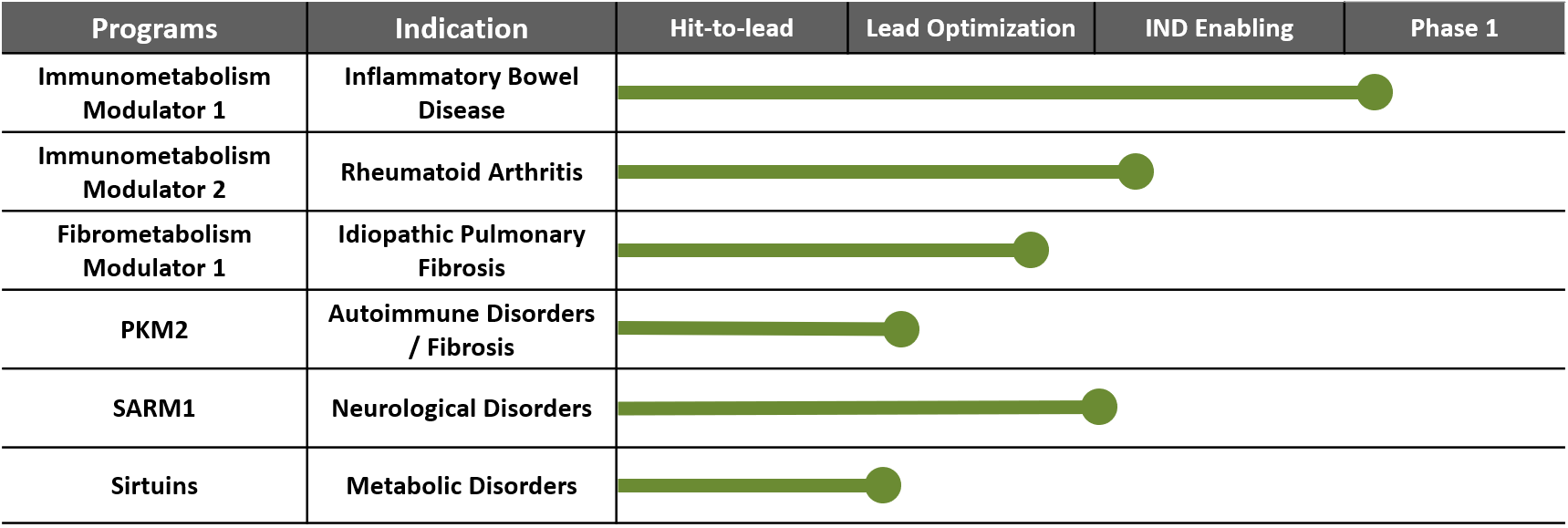
Our Research
Lmito's research of the mitochondria and subsequent deep understanding of metabolic processes directed us toward new drug discovery of immunotherapeutic compounds in immunology, neuroimmunology, immuno-fibrosis, and immuno-oncology through modulating cell metabolisms.
Lmito’s major therapeutic areas
Auto-Inflammatory and Auto-Immune Diseases
Immunometabolism refers to the cellular metabolism of immune cells and the interface between immunology and metabolism.
Immune cells usually maintain energy homeostasis. However, under certain circumstances, they undergo substantial metabolic reprogramming to meet huge metabolic demands following activation.
Lmito’s compounds modulate the immunometabolism of overactivated immune cells and modify their function.
Targeting immuno-metabolism to mitigate inflammation does not completely suppress the entire immune system, but selectively regulates immune responses without adverse effects such as infections.
Neurological Disorders
We are expanding our research to the neuroinflammatory disorders through modulating overactivated and proinflammatory reactive astrocytes. Lmito compounds can also polarize M1-like proinflammatory microglia to M2-like anti-inflammatory microglia, resulting in mitigated inflammation.
Fibrosis
The formation of fibrotic tissue during the process of a healing wound is normal. However, in a pro-fibrotic pathological condition, the excessively accumulated ECM components caused by activated myofibroblasts can lead to organ dysfunction and, ultimately, organ failure.
Unregulated glycolysis by activated fibroblasts and myofibroblasts can yield ATP faster and produce more building blocks for increased ECM production. Metabolic reprogramming is crucial for myofibroblasts differentiation and profibrotic phenotypes.
Lmito compounds can mitigate pro-fibrotic processes through metabolic reprogramming of not only myofibroblasts that are characterized by enhanced anabolic metabolism, but also through regulating several metabolically demanding processes such as EMT and inflammatory responses.


